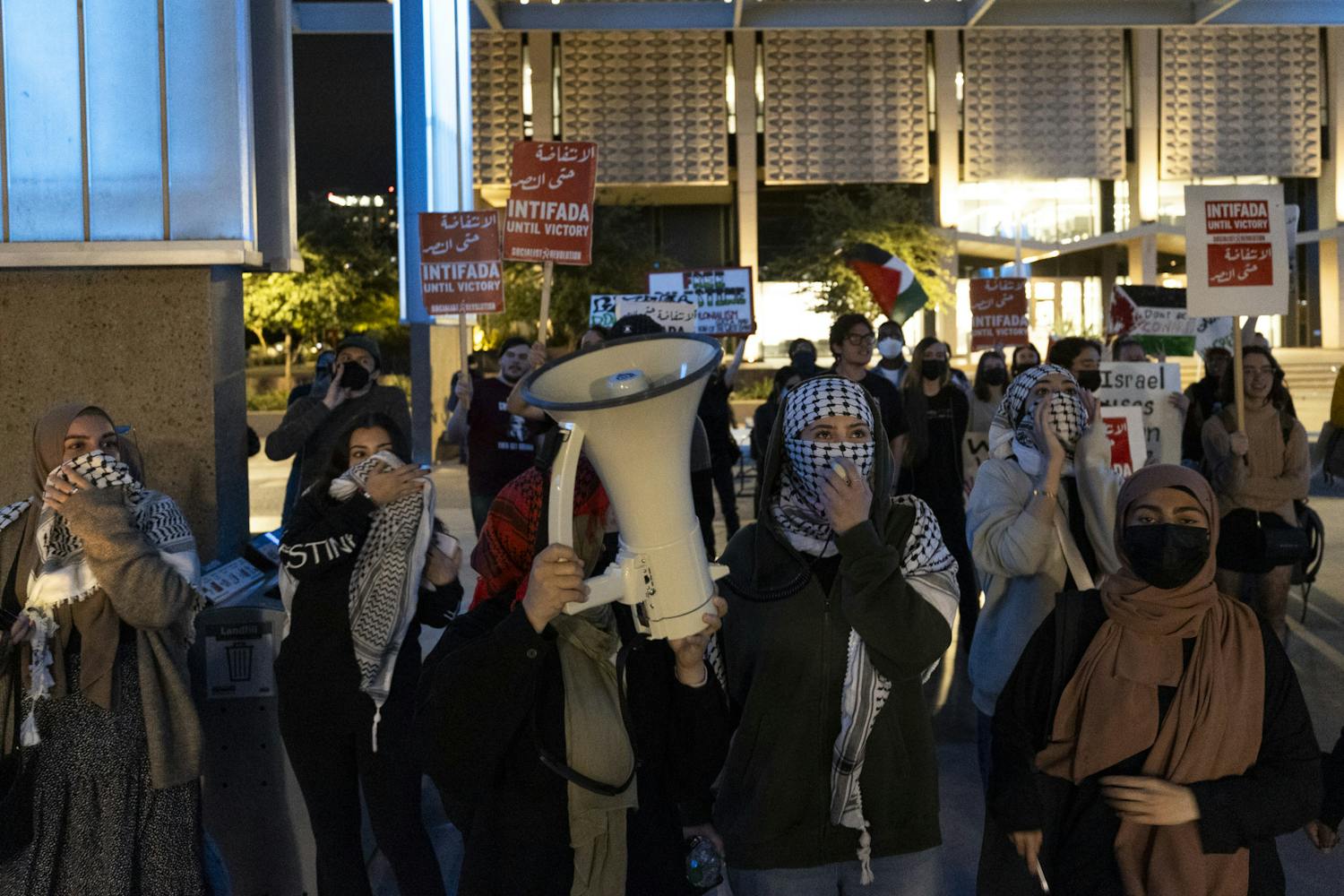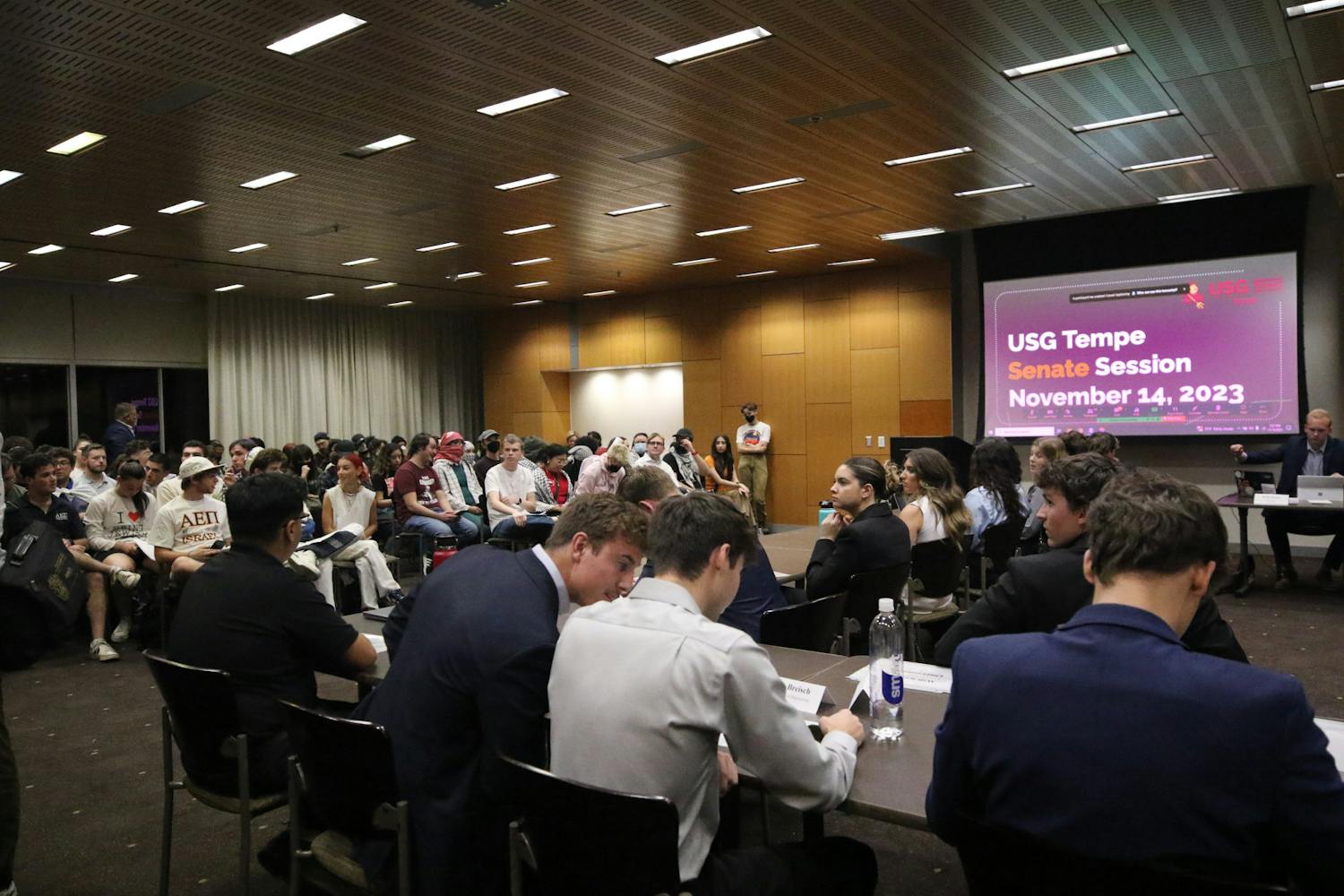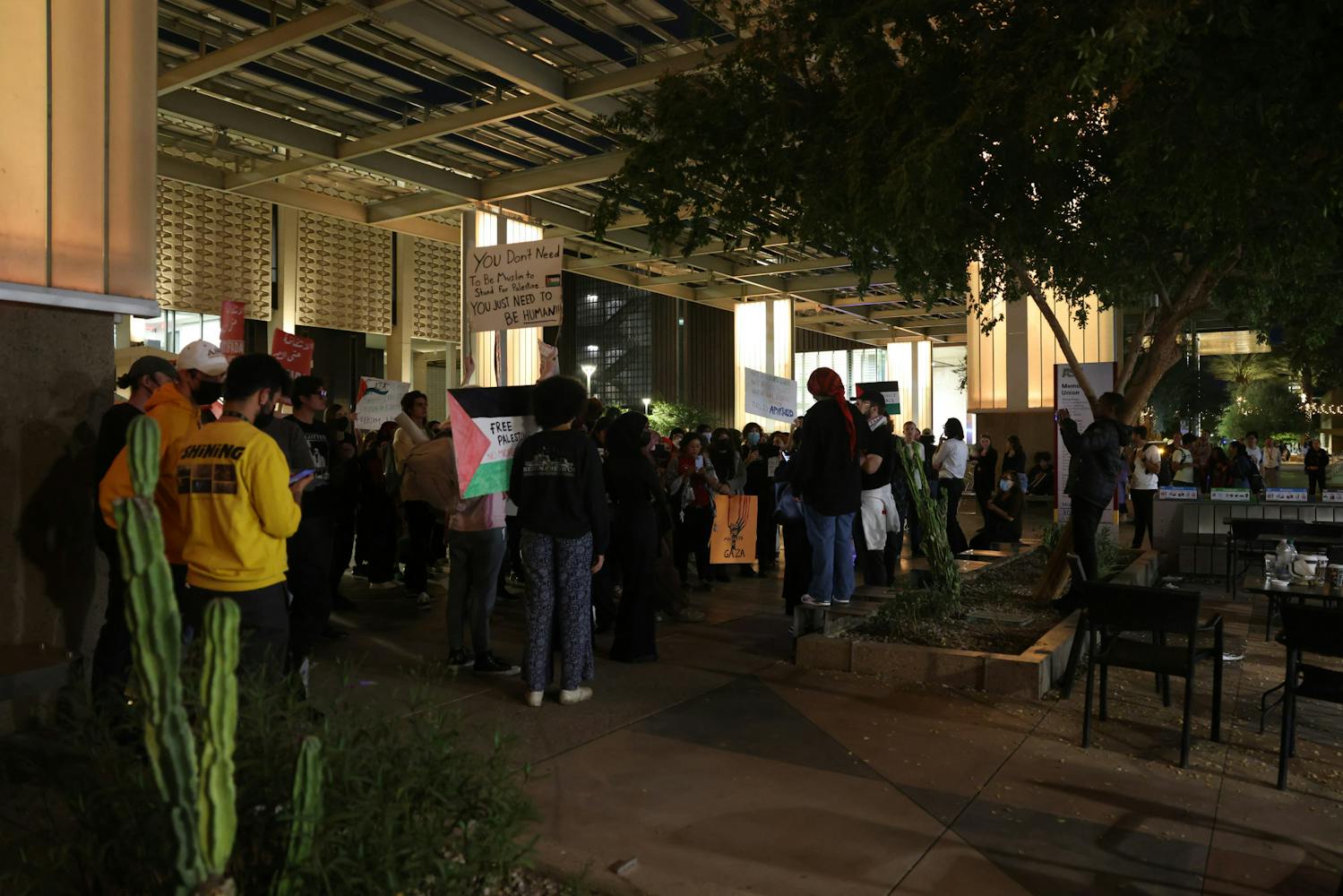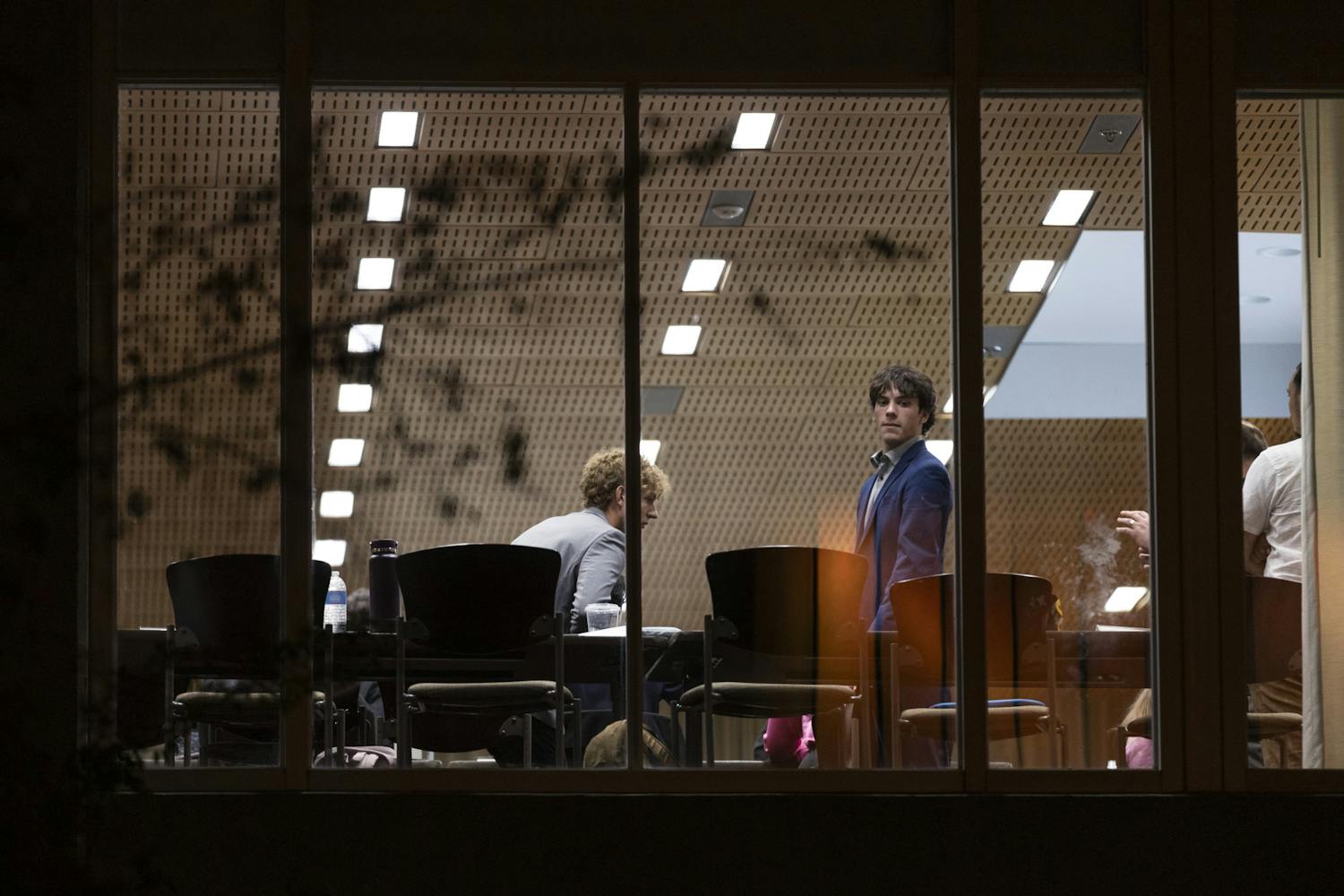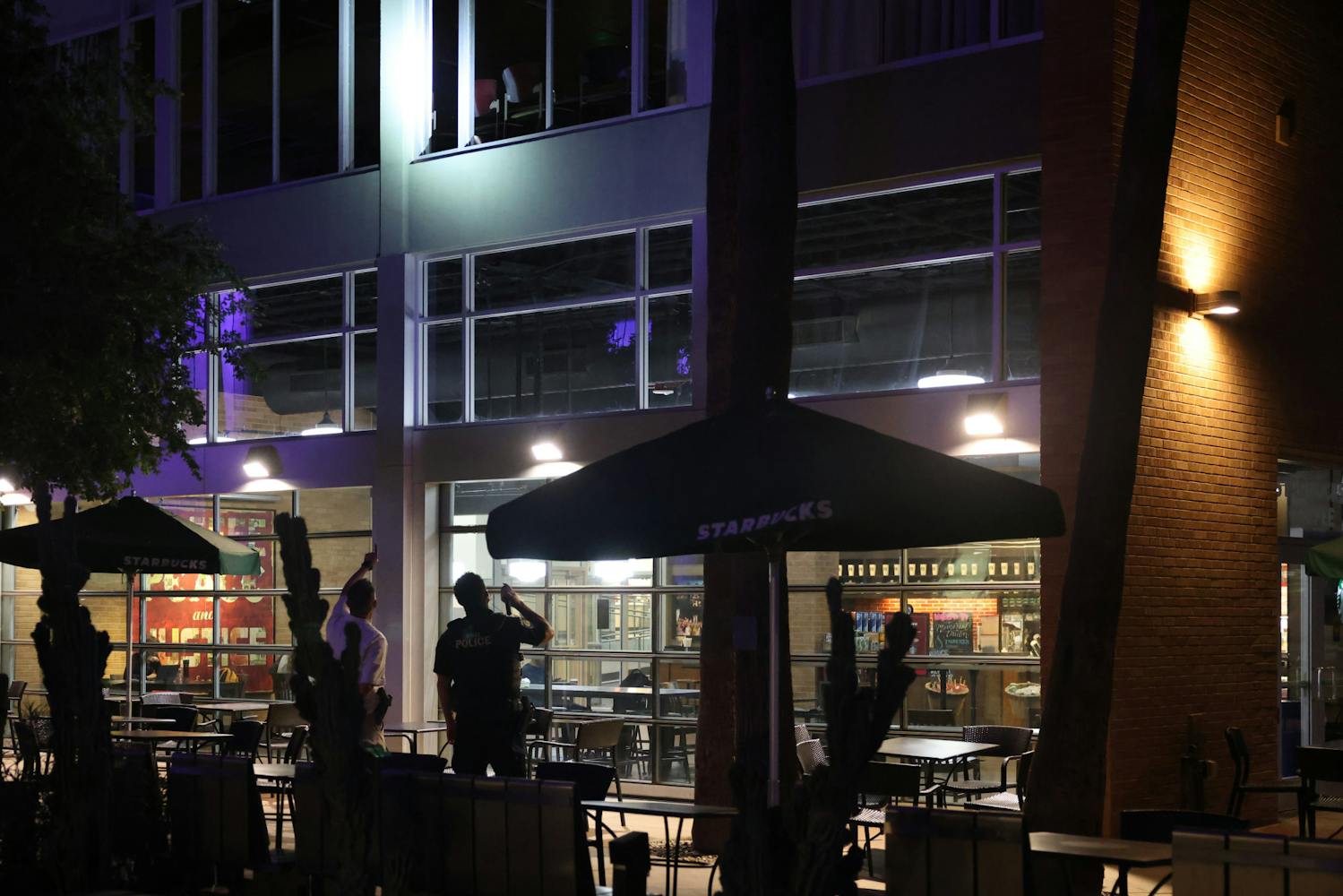An Undergraduate Student Government meeting was adjourned abruptly after some people involved in a rally supporting Palestine outside the Memorial Union threw rocks at the second-floor window to the room where the meeting was being held.
Members of ASU’s chapter of Students for Justice in Palestine congregated to voice support for Boycott, Divestment, Sanctions legislation, and students involved in ASU’s five Jewish organizations stood against it at the USG Senate meeting on Tuesday night.
ASUPD is actively investigating the incident, which is being reviewed for possible disorderly conduct/criminal damage charges.
In a statement, the University said, "Arizona State University provides a community that embraces diversity, tolerance, respect, and inclusion. The university rejects and denounces antisemitism. ASU will not tolerate physical intimidation or violence, and we will take action to ensure the physical safety of students."
A YDSA spokesperson said none of the organizers knew who was throwing rocks and that no arrests were made.
President of SJP at ASU Finn Howe said they were there to advocate for BDS.
"We’re calling on ASU to boycott and divest from companies making the occupation possible," Howe said. "We're here as students to make our voices heard to those who are supposed to represent us."
Howe said SJP has been working with Senator Samuel Ndinjiakat Jr. to draft legislation over the last couple of weeks, but due to "procedural policy," they could not present it to USG.
Students involved in ASU’s Jewish organizations, Alpha Epsilon Pi, Alpha Epsilon Phi, the Hillel Jewish Student Center, Chabad at ASU and Olami ASU, voiced concerns about antisemitism in relation to BDS.
READ MORE: Jewish organizations on campus file petition to ASU administration to reject BDS
"The proposed BDS resolution is incredibly antisemitic," said Ben Griffith, a senior studying education and member of ASU Hillel. "This is a joint effort by the Jewish organizations on campus to get as many Jewish students involved and together to show that we are proud of our Judaism and want to feel safe on campus."
Howe said that SJP does not stand for antisemitism, and their proposed legislation is not antisemitic.
"SJP is completely against antisemitism, and we have a long history of standing beside Jewish students," Howe said. "It is not about Judaism versus Islam. It's about standing up against genocide."
An equal amount of supporters for Israel and Palestine were allowed into the USG meeting, directed by USG Senate members. Students on both sides of the conflict had a ten-minute time limit to voice concerns to the Senate.
Members of SJP at ASU, two of whom said they were Jewish, spoke in favor of BDS to the Senate, describing their experiences as the conflict in the Middle East continues.
"This University is complicit in genocide," Howe said to the Senate at the meeting. "We are all deeply, deeply upset about what is going on right now. That's why we're here today because we are calling on ASU, as we have been for over ten years now, to boycott and divest from Israel."
Solomon Pajic Rabich, a student studying interdisciplinary studies, said he was there to join other Jewish students in condemning violence against Israelis.
"It is essential that BDS rhetoric is prohibited from ASU's campus to protect Jewish students," Rabich said to the Senate at the meeting. "I plea that you refrain from allowing BDS on ASU's campus."
Following student testimonies, USG-Tempe President Morgann Kelly and Tempe Senate President William Hanson made statements showing appreciation for the students' passion for advocacy. They encouraged them to continue relying on USG for their concerns.
Chants from an outside protest in support of Palestine began while the meeting continued and were heard over a moment of silence for all who passed as a result of the conflict in Israel and Gaza.
As the protest outside escalated, some attendees threw rocks at the Alumni Room's window, where the meeting was held. Members of SJP left the room, and the session abruptly adjourned because of Jewish students' and senate members' safety concerns.
Around 50 protestors gathered outside, facing toward the windows of the USG meeting. The protestors listened to multiple speakers and participated in chants against USG, the University and the overall continued conflict in the Israel-Gaza region.
READ MORE: Student organizations call on ASU to boycott and divest from companies supporting Israel
"The reason why we're here today is because the democratic right of students was suppressed," said Erica Low, a member of Socialist Revolution Arizona. "They had a bill for BDS, and (USG) decided not to hear it."
Jewish organizations and USG members who were at the meeting left the Memorial Union through the southern entrance and were escorted by ASUPD officers.
As the protest continued, protestors turned their attention to a few people taking pictures with the crowd supporting Palestine. Of the people taking pictures, one was seen wearing Hebrew writing on their clothing, and another was wearing a yarmulke with the flag of Israel.
"We stand against any kind of suppression of the Palestine solidarity movement," Low said.
Howe, too, spoke about the lack of action from the University and USG during the meeting.
"I want to send a message to the student body president, Morgann Kelly … You were saying at the end (of the meeting) it's not USG’s role to advise Arizona State University – well, when is the University going to listen to its students?" Howe said. "What else is the point of the student government?"
Edited by Shane Brennan, Walker Smith and Angelina Steel.
Editor's note: This story was updated at 12:55 p.m. on Nov. 15, 2023, with new information from ASU about the investigation and the University's response. This story is developing and may be updated.
Reach the reporters at pjhogan2@asu.edu and alysa.horton@gmail.com and follow @PhineasHogan and @alysa_horton on Twitter.
Like The State Press on Facebook and follow @statepress on Twitter.
Alysa is a senior studying journalism and mass communication with a minor in political science. This is her fifth semester with The State Press. She has also worked at The Arizona Republic.
